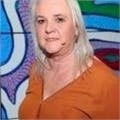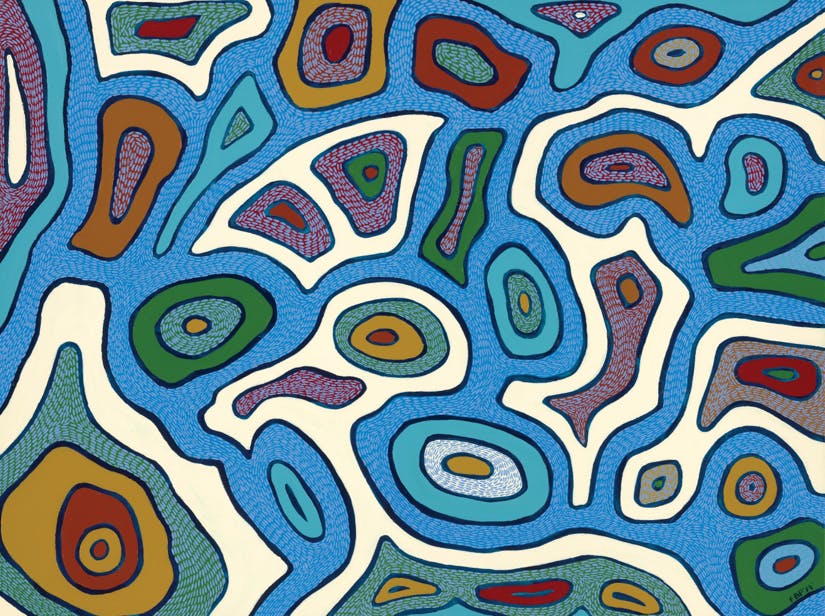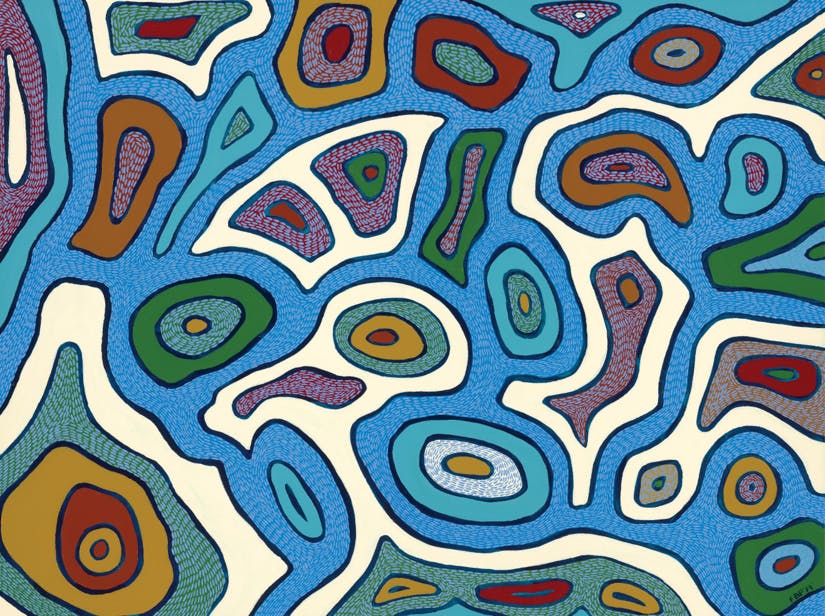Help to shape our next chapter of reconciliation
Consultation has concluded
As we continue on our journey to reconciliation at Transport for NSW we are now developing our second Reconciliation Action Plan (RAP), moving from an Innovate RAP to Stretch RAP.
Please check out the information on the right hand side of this page, take a look at the progress we've made since our first RAP commenced in 2019 and most importantly please have your say by completing the consultation survey.
You can also provide further feedback via the Ideas tab on this site or by emailing the RAP Team: RAPTeam@transport.nsw.gov.au
As we continue on our journey to reconciliation at Transport for NSW we are now developing our second Reconciliation Action Plan (RAP), moving from an Innovate RAP to Stretch RAP.
Please check out the information on the right hand side of this page, take a look at the progress we've made since our first RAP commenced in 2019 and most importantly please have your say by completing the consultation survey.
You can also provide further feedback via the Ideas tab on this site or by emailing the RAP Team: RAPTeam@transport.nsw.gov.au
-
Pathways for Regional Rail



An Aboriginal working group on the Regional Rail Project supported pathways for Aboriginal businesses and employees, including tender-writing workshops, a school-based traineeship program and a pre-employment program with Aboriginal participants.
Eighteen Aboriginal businesses have been engaged to date and the project is exceeding its Aboriginal participation requirements. As at June 2021, 57 per cent of the project’s apprentices were Aboriginal (against a 10 per cent requirement), with 19 per cent of level 1 supervisor and above positions held by Aboriginal people, against a requirement of five per cent.
Five major packages for the Regional Rail Maintenance Facility in Dubbo – named the Mindyarra Maintenance Centre, a Wiradjuri word that means to fix or repair – have been awarded to an Aboriginal business, and electrician and trade assistant roles have been recruited locally.




-
Jobs boost on western Sydney roads


A massive road project in western Sydney has delivered over and above its targets to employ Aboriginal people and provide opportunities for Aboriginal businesses. Stage 2 of the Northern Road Upgrade spent $14.8 million on Aboriginal businesses in accordance with the Aboriginal Participation in Construction (APiC) policy, achieving expenditure 2.5 times the targeted spend of $5.95 million. The Northern Road Upgrade Stage 3 Alliance also more than doubled its targeted spend and achieved 4.2 per cent expenditure on APiC.


-
A driver’s licence saves lives


A driver’s licence can change lives. It can be the difference between getting a job and being able to access education, training and health services. But there can be barriers for Aboriginal people obtaining a licence, including cost, access to cars to learn on and mentors for training.
Since 2015 the Driver Licensing Access Program has helped Aboriginal and disadvantaged people obtain and retain their driver’s licence to be safe and legal drivers. More than 4,500 participants have so far gained a Learner Licence and more than 3,000 people a Provisional Licence.
This year Transport announced a $20 million expansion of the Driver Licensing Access Program, which provides culturally appropriate support free to eligible participants. The program includes understanding road rules and building road safety knowledge; literacy, numeracy and computer skills to prepare for the licence tests; on-road driving supervision, mentoring and coaching; and access to roadworthy vehicles.
Having a driver’s licence saves lives. Unlicensed drivers are about twice as likely to be involved in a casualty crash and four times more likely to be involved in a fatal crash.



-
Cultural values assessment mapping

Yarns Parai (Stories on country). detail, Saretta Fielding
Transport has engaged an Aboriginal-owned business and a team of local Aboriginal people to undertake an Aboriginal cultural values assessment for the proposed Lower Hunter Freight Corridor.
Previous investigations undertaken by Transport indicated the potential corridor routes – for a dedicated freight rail line between Fassifern and Hexham, bypassing Newcastle – could pass through areas of cultural and archaeological sensitivity.
In developing the preferred option Transport wanted to ensure that the process was fully informed of the Aboriginal cultural landscape and Aboriginal community aspirations.
The values assessment integrates the ethno-historic record with oral tradition and uses artwork and digital materials to present findings and assist in passing the knowledge collated back to community in a meaningful way.
The project has improved connections between Transport strategic planners, Aboriginal business and cultural knowledge holders.
As part of the strategic planning for the Princes Highway Upgrade, Transport is also engaging with Aboriginal communities from Nowra to the Victorian border to better identify and map areas of cultural sensitivity within the landscape and reduce future impacts.
The Lower Hunter Freight Corridor will enable a future dedicated freight rail line to be constructed between Fassifern and Hexham; bypassing Newcastle while improving regional and interstate links.
 Yarns Parai (Stories on country)
Yarns Parai (Stories on country)
Artwork by Saretta Fielding


-
What’s in a name?



Mariyung is the Darug word for emu and was chosen for the name of the New Intercity Fleet trains that will travel between Sydney and the Central Coast, Newcastle, the Blue Mountains and the South Coast.
The trains will pass through many ancient Aboriginal countries, including Darug, Wiradjuri, Awabakal and Dharawal. In Darug mythology, Mariyung lay in the night sky waiting for the Dreamtime to begin to guide Aboriginal people through seasons, time and locations.
The Mariyung carriages will feature artwork designed by Darug artist Leanne Mulgo Watson, chair of the Darug Custodians Aboriginal Corporation.



-
Songlines shared with travellers


Songlines are Aboriginal travel routes that link important cultural sites, ancestral stories and locations and were traditionally memorised and sung by the traveller to know the route of their destination.
The Woolgoolga to Ballina Pacific Highway Upgrade Aboriginal Art Trail has offered the opportunity for local Aboriginal communities to share their Songlines, or creation stories, with the travelling public through art on overhead bridges and sculptures in new rest areas.
The project has engaged artists who represent the three nations – Gumbaynggirr, Yaegl and Bundjalung – that the Woolgoolga to Ballina Upgrade crosses. The artists were asked to create artworks telling stories of their local Songlines, in consultation with Elders and local knowledge holders. The engagement of the artists has been a collaboration with Transport’s project partner Balarinji, an Aboriginal-owned design agency.
Respect for the sensitive nature of the Songlines is a key component of this project. Transport, the community and the travelling public will be generously allowed to view the First Nation people’s history via visual representation of their creation stories.



-
Sowing seeds for sustainability



We’re working with Aboriginal organisation Muru Mittigar to collect native and endemic seeds to preserve and restore the endangered native Cumberland Plains Woodland vegetation that has been cleared for the Sydney Metro – Western Sydney Airport project.
The landscaping focus is to create a legacy for the new Western Parkland City, benefiting from expert Aboriginal guidance on how to reinstate the vegetation and develop an understanding about caring for Country.
Muru Mittigar is a social enterprise and Registered Aboriginal Organisation based in western Sydney that provides employment opportunities and financial counselling for Indigenous Australians.


-
Aboriginal Cultural Education training


Transport runs a one-day course called Aboriginal Cultural Education (ACE) training for all staff interested in building their knowledge to develop sustainable relationships with Aboriginal customers, colleagues and communities. ACE is held monthly at our Petersham Transport Training Centre in Sydney, and periodically at regional locations.
In this interactive and thought-provoking course, our people learn about:
- the diverse nature of Aboriginal cultures, nations and protocols, family and kinship systems
- the impact of colonisation on Aboriginal people
- why we must challenge myths and stereotypes
- our responsibility for Aboriginal representation
- better ways to work with Aboriginal people
- communicating with Aboriginal colleagues and customers
- how to create culturally appropriate programs and services.



-
Reconciliation is more than words



Transport marks important events like National Reconciliation Week by reaching out to all our staff to support us in this ongoing journey.
In 2021, more than 2,000 staff across NSW took part in a special National Reconciliation Week event either in person or online. This year’s theme was “More than words. Reconciliation takes action”.
It was an opportunity to learn of the breadth and impact of programs Transport delivers to support Reconciliation. A panel of passionate and talented Transport people gave the audience a taste of the diverse range of initiatives and programs.
Prominent Aboriginal journalist Karla Grant shared the story of her life and how she became a well-known media presenter, calling on all Australians to take action on Reconciliation because it’s everyone’s business.
Five ways to join our Reconciliation journey
Infrastructure and Place Executive Team Learn About Ancient Wisdom in the Blue Mountains




The Blue Mountains has many Aboriginal sacred sites, including rock engravings of Dreamtime stories. Staff from Transport’s Infrastructure and Place executive team braved wintry 4 degrees Celsius temperatures for a day trip to learn about the traditional life of the Darug people, their ancient wisdom and how to apply this knowledge in contemporary society.



Key dates
-
24 November 2021
-
24 November 2021 → 27 January 2022
-
12 December 2021
-
28 December 2021 → 28 January 2022
-
04 February 2022




